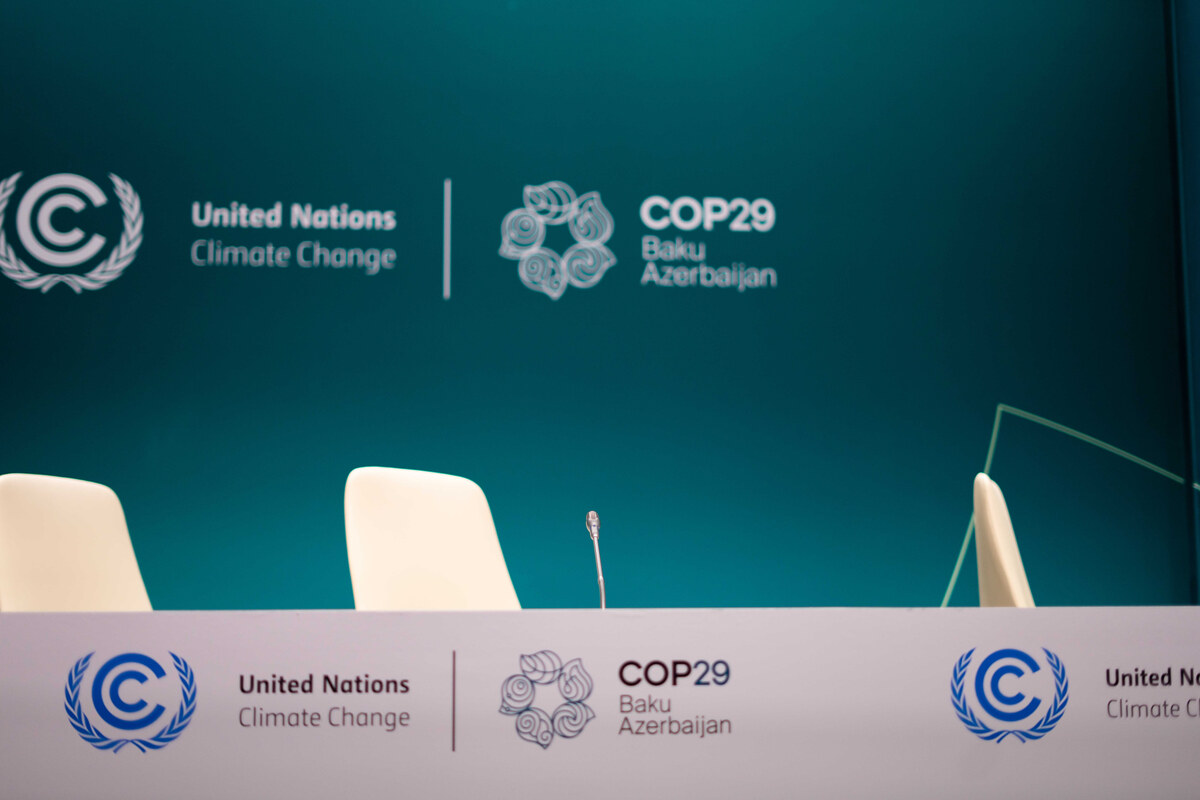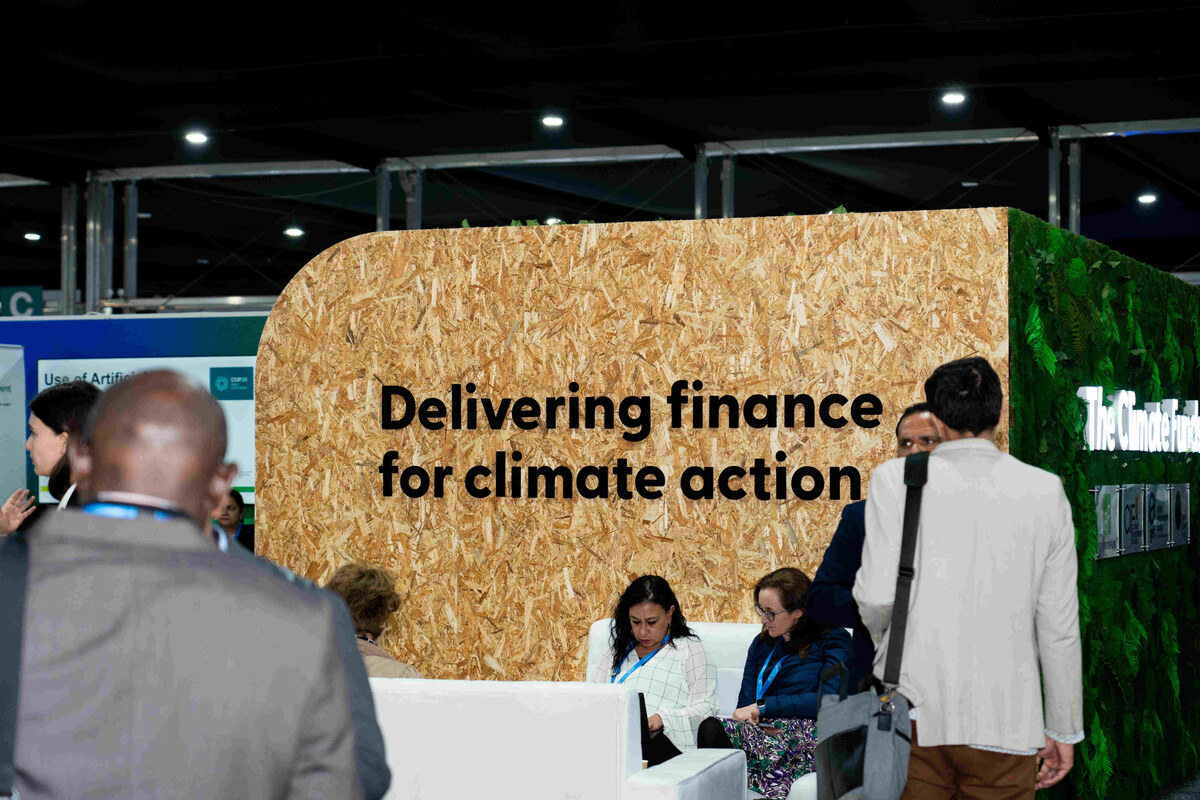BAKU: As COP29 nears its conclusion, negotiators are working intensively to finalize agreements that could significantly advance global climate action.
Hosted in Baku, Azerbaijan, the conference has focused on critical issues such as climate finance, adaptation strategies, and the operationalization of carbon markets under the 2015 Paris Agreement.
Although decisions remain in draft form, the discussions signal progress on aligning global efforts with the urgent need to combat the climate crisis.
Saudi Arabia has emerged as a key player, leveraging its growing diplomatic influence and domestic climate initiatives to shape the outcomes.
Push for equitable climate finance
One of the most pressing topics at COP29 has been the New Collective Quantified Goal on climate finance.
Negotiators are seeking to establish a framework that mobilizes $1.3 trillion annually by 2035 to support developing nations in addressing climate change.
This new goal reflects the escalating financial demands of both mitigation and adaptation efforts, with developing countries requiring $215 billion to 387 billion annually for adaptation alone through 2030.
Saudi Arabia has been a vocal advocate for equitable financing mechanisms, emphasizing the need for practical pathways to unlock funds for countries that bear the brunt of climate impacts yet have limited resources.
The Kingdom has supported calls for reforming global financial institutions to reduce barriers such as high borrowing costs and restrictive conditions. This aligns with Saudi Arabia’s broader position that climate finance must be accessible and targeted to the most vulnerable nations.
Domestically, Saudi Arabia has backed its advocacy with action. The Kingdom has committed significant investments to its Saudi Green Initiative, which includes billions of dollars for renewable energy projects, reforestation, and environmental restoration.
These initiatives underscore Saudi Arabia’s dual focus on addressing domestic climate challenges and contributing to global solutions, according to the draft resolution.
“Through initiatives like the Saudi Green Initiative, the Kingdom has committed to reducing regional emissions by more than 10 percent and leading the planting of 50 billion trees across the Middle East to combat desertification and foster environmental sustainability,” the document stated.

Speeches came to an end as negotiations at COP29 in Baku reached their final hours. AN Photo/Abdulrahman Bin Shulhub
Carbon Markets: A Saudi priority
Discussions on Article 6 of the Paris Agreement, which governs international carbon trading, have been another focal point of COP29.
Saudi Arabia has taken a prominent role in shaping the rules for carbon markets, advocating for frameworks that promote transparency and equitable participation.
Under Article 6.2, which covers bilateral cooperation, and Article 6.4, which establishes a centralized mechanism for trading carbon credits, Saudi negotiators emphasized the importance of avoiding double-counting emissions reductions and ensuring environmental integrity.
These safeguards are essential for building trust in the carbon market as a tool for accelerating emissions reductions.
In the draft resolution on financing released by the UN Framework Convention on Climate Change it is outlined that “Saudi Arabia emphasizes the importance of transparency and equitable participation in Article 6 mechanisms, ensuring that developing nations can benefit from international carbon trading frameworks.”
The Kingdom’s engagement in these discussions reflects its broader ambition to become a regional hub for carbon trading. The Kingdom is advancing projects in carbon capture, utilization, and storage, positioning itself as a leader in leveraging market-based solutions to achieve climate goals.
These efforts align with the Saudi Green Initiative’s targets for emissions reductions and renewable energy expansion.
A commitment to adaptation
While mitigation often dominates global climate discussions, COP29 has seen renewed attention to adaptation – an area where Saudi Arabia has also contributed actively.
Negotiators are working to refine the Global Goal on Adaptation by developing measurable indicators to track progress.
These metrics aim to ensure that adaptation efforts are effective and responsive to the needs of vulnerable communities.
“Saudi Arabia continues its focus on promoting energy efficiency, a critical pillar of its sustainability agenda, as highlighted by top officials during COP29 discussions,” reads the draft resolution.
The Kingdom has supported these efforts, emphasizing the importance of integrating local knowledge and traditional practices into adaptation strategies. The Kingdom’s approach aligns with its domestic priorities, which include enhancing resilience to desertification and water scarcity, challenges exacerbated by its arid climate, the document added.
Inclusivity and collaboration
Inclusivity has been a central theme at COP29, and Saudi Arabia has demonstrated its commitment to ensuring diverse voices are part of the climate conversation. The Kingdom supported the draft Baku Workplan, which aims to elevate indigenous peoples and local communities in climate governance.
Domestically, Saudi Arabia has prioritized inclusivity through education and workforce development programs that prepare youth and women for leadership roles in green industries.
These initiatives are part of broader reforms under Vision 2030, which aims to diversify the economy while ensuring equitable opportunities for all citizens.

COP29 began on Nov. 11. AN Photo/Abdulrahman Bin Shulhub
Regional leadership
Saudi Arabia’s influence extends beyond its national borders. Through the Middle East Green Initiative, the Kingdom is fostering regional cooperation to combat climate change.
The initiative includes ambitious goals to plant 50 billion trees across the Middle East and reduce regional emissions by more than 10 percent.
At COP29, these efforts were presented as examples of how regional action can amplify global progress.
By working closely with other Gulf Cooperation Council countries, Saudi Arabia is also driving investments in renewable energy projects that enhance energy security and sustainability.
These partnerships underscore the Kingdom’s role as a regional leader in climate action, capable of catalyzing collective efforts to address shared challenges.
Challenges and opportunities ahead
As COP29 approaches its conclusion, much remains to be finalized. The draft decisions on climate finance, carbon markets, and adaptation reflect significant progress but also underscore the complexity of reaching consensus among diverse stakeholders.
Saudi Arabia’s contributions to these discussions demonstrate its ability to balance domestic priorities with international leadership. By advocating for equitable solutions, advancing regional cooperation, and showcasing its own climate successes, the Kingdom has positioned itself as a key player in shaping the global response to climate change.
The conference has marked an important step forward in the global fight against climate change. The agreements under discussion – particularly those on finance and carbon markets – highlight the growing recognition that collective action is essential to achieving the Paris Agreement’s goals.
Saudi Arabia’s active participation in these negotiations underscores its evolving role as a climate leader.






















